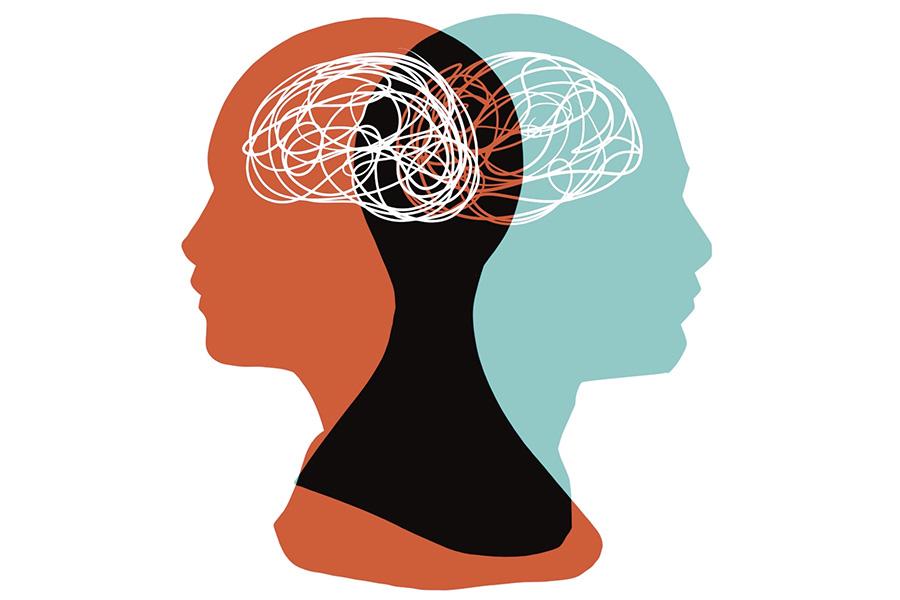Comprehensive Inpatient Mental Health Solutions for Effective Therapy
Inpatient psychological health and wellness solutions represent an important element of the healthcare system, providing a extensive and structured atmosphere for people experiencing extreme psychological distress. Checking out the nuances of this continuum discloses significant effects for both private healing and broader psychological wellness results.
Comprehending Inpatient Mental Health Providers
Inpatient psychological health and wellness services give essential assistance for individuals experiencing extreme mental distress that can not be handled effectively in an outpatient setup. These services are designed to use an intensive degree of treatment in a structured setting, typically within a medical facility or specialized facility. Individuals admitted to inpatient programs commonly show acute signs, such as suicidal ideation, serious depression, or psychosis, demanding day-and-night surveillance and intervention.
The admission procedure typically entails an extensive analysis by mental wellness professionals, that review the individual's psychological state, history, and instant needs. When confessed, patients involve in a selection of restorative methods tailored to their particular needs, including drug management, private treatment, and group sessions. This alternative strategy aims to stabilize the individual's problem, promote security, and foster coping abilities.
Inpatient psychological health services not only address prompt wellness concerns however likewise function as a bridge to ongoing care. By giving a controlled atmosphere, these services assist in the growth of therapy plans that can be continued in outpatient settings, therefore making certain a continuum of treatment and improving long-term outcomes for individuals with complicated mental health and wellness requirements.
Trick Elements of Effective Therapy
Reliable therapy in inpatient psychological wellness solutions consists of several key components that foster recovery and stabilization. A thorough evaluation is crucial to recognize the person's certain requirements and difficulties. This evaluation informs the development of a customized therapy plan, which acts as a roadmap for intervention.
An additional essential element is the multidisciplinary team method. Collaboration amongst psychoanalysts, psychologists, nurses, and social employees makes sure that different perspectives add to the person's treatment, boosting the efficiency of treatment. Evidence-based healing techniques, such as cognitive-behavioral therapy (CBT) and dialectical behavior modification (DBT), are also indispensable, supplying structured strategies that attend to maladaptive thought patterns and behavior problems.

Finally, a focus on aftercare planning is critical to make certain a smooth transition to outpatient services, decreasing the threat of regression and promoting lasting health. These cumulative components develop an efficient treatment structure within inpatient mental health and wellness solutions.
Advantages of Comprehensive Care

Thorough care in inpatient mental wellness solutions offers many advantages that considerably improve person outcomes. One of the main benefits is the all natural approach to treatment, dealing with not just the emotional signs and symptoms but also the physical, social, and emotional requirements of individuals. This thorough assessment allows for tailored interventions that promote general wellness.
An additional advantage is the assimilation of multidisciplinary groups, which fosters collaboration among healthcare professionals. This collective atmosphere makes sure that people obtain collaborated treatment, lowering the threat of fragmented therapy and boosting communication among caregivers. Moreover, detailed care helps with continuity of services, enabling smooth changes from inpatient to outpatient setups, which is important for long-lasting healing.

Lastly, the structured environment of comprehensive inpatient care offers a risk-free area for clients to take part in restorative activities, assisting them develop dealing approaches and strength. Jointly, these benefits add to more reliable therapy and enhanced high quality of life for individuals experiencing psychological wellness dilemmas.
Evidence-Based Therapeutic Approaches
In the world of psychological health and wellness treatment, evidence-based healing techniques play a vital function in making sure that clients receive reliable and clinically supported treatments. These techniques integrate the best readily available study with medical competence and client worths, promoting a tailored therapy experience that deals with individual demands.
Cognitive Behavior Modification (CBT) is among one of the most extensively recognized evidence-based techniques, concentrating on identifying and altering adverse thought patterns and behaviors. This organized strategy has demonstrated efficiency in dealing with conditions such as ptsd, depression, and stress and anxiety. Dialectical Habits Therapy (DBT) is especially efficient for people with borderline character problem, stressing the growth of psychological law and social performance abilities.
In addition, drug administration is typically an indispensable component of evidence-based treatment, as psychotropic medications can relieve symptoms and enhance general functioning. Collaborative treatment versions, which entail multidisciplinary groups, even more enhance the efficacy of inpatient solutions by ensuring comprehensive evaluations and continual tracking.
Eventually, the integration of evidence-based therapeutic strategies not just promotes favorable scientific results but additionally equips clients, fostering a feeling of company and resilience in their psychological health and wellness journeys.
Transitioning to Outpatient Assistance
The shift from inpatient psychological wellness services to outpatient assistance marks a crucial stage in an individual's recovery trip. This period calls for cautious preparation and sychronisation to ensure connection of care and to minimize the risks of regression or crisis. Reliable discharge planning need to begin early in the inpatient keep, including a multidisciplinary group that includes psychoanalysts, psychologists, registered nurses, and social workers.
Trick elements of an effective transition include the growth of an extensive aftercare strategy tailored to the person's specific requirements. This strategy ought to lay out follow-up appointments, drug management, and healing interventions, in addition to recognize community resources and support system that can assist in recurring recovery.
Additionally, patient and household education and learning is vital during this phase. Recognizing the signs of prospective setbacks and the value of sticking anchor to treatment can equip individuals and their support systems.
Regular follow-up and review of the outpatient strategy my link are vital to resolve developing difficulties. By cultivating a collaborative relationship in between outpatient and inpatient companies, the chance of continual recovery increases, ultimately improving the individual's lifestyle and reducing the risk of readmission.

Verdict
In summary, detailed inpatient mental health services supply a vital structure for resolving severe mental distress via a multidisciplinary approach. By integrating evidence-based treatments, cultivating a structured atmosphere, and advertising family members participation, these services improve therapy performance. The focus on stability and the development of coping skills not just help in prompt recovery but likewise assists in a smoother change to outpatient treatment. Inevitably, such comprehensive care is important for long-lasting psychological wellness and health.
The admission process typically involves a comprehensive assessment by mental wellness specialists, who evaluate the individual's mental state, history, and prompt requirements.Effective therapy in inpatient psychological health and wellness services consists of numerous key parts that cultivate healing and stablizing.Extensive care in inpatient psychological wellness solutions provides numerous advantages that dramatically improve client outcomes.The change from inpatient mental health solutions to outpatient support notes an essential stage in a client's official website recuperation trip.In summary, thorough inpatient mental health solutions offer a crucial structure for dealing with extreme mental distress via a multidisciplinary technique.